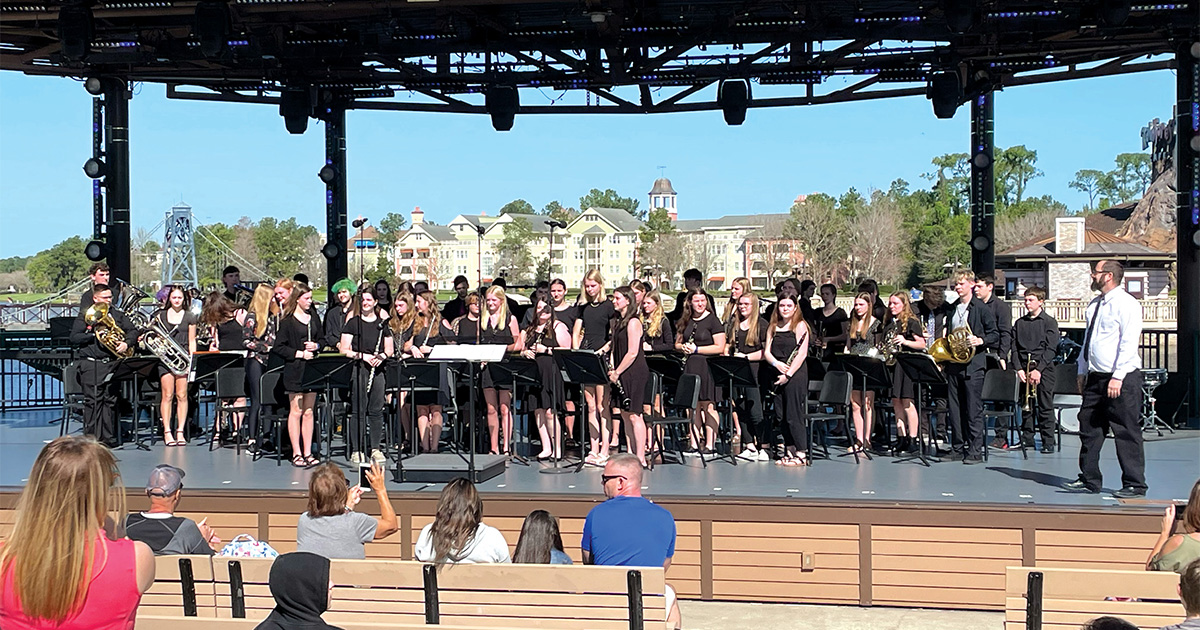With the benefits of student travel so evident, it’s unsettling to think financial reasons alone keep many students—especially those on free and reduced lunch programs—from experiencing travel. SYTA research indicates 74 percent of teachers believe travel has a positive impact on students’ personal development, yet 86 percent note the barrier they see keeping students from traveling is rooted in financial reasons.
A recent SYTA-sponsored edWebinar explored ways educators could take advantage of grants and scholarships for their students and how to navigate the application progress.
Scholarships and Opportunities
Consider crowdfunding. Through assorted mobile-friendly and online platforms, students can easily target various markets outside of their community alone. Because these websites generally collect 3 to 5 percent of every donation, you might ask donors to contribute with that in mind. eScrip programs are another option.
Sponsorships. Another form of fundraising to consider, sponsorships are a way for businesses to support your program in exchange for recognition or brand awareness.
“You can often find a lot of local support from businesses and organizations,” said Carylann Assante, CAE, Chief Executive Officer, SYTA and SYTA Youth Foundation (SYF).
NOTE: Not all donations may be tax-deductible to the donor. Please see the IRS website for eligible taxable donations.
Grants. Foundations and universities, as well as state and federal governments, may award your program a grant if it fulfills their mission of developing a life skill, building awareness of future professions, employment and workforce training, and leadership—for example, Give a Note Foundation for Music in Schools, or Newseum for Journalism and Freedom of Speech, and so on.
“With some research,” added Assante, “you may be able to identify if your local government or colleges offer grants that you may be able to access.”
Corporate grants and scholarships aren’t often thought of, but could be available through businesses such as Visa, Target and American Express. You’d be surprised to see what’s out there, so do some online research and determine whether these are awarded on a local or national level.
“You generally have to work 12 to 18 months out to access those larger amount grants,” Assante said.
SYTA offers two types of programs: The Road Scholarship for individual awards and the Silver Lining, Next Generation and AEF DC Rite of Passage group education programs.
How Educators Can plan Ahead
“Over the years, we have impacted over 7,200 students and funded more than 1.3 million in scholarships and programs,” said Teresa Crews, Product Development & Management, Universal Orlando Resort, who serves as SYF Programming Chair.
To be successful in applying for an SYF scholarship, keep a few things in mind.
- Road Scholarship nominations are required to be submitted by an educator, youth program leader or designated school office for students K-12 and 18 years of age or younger.
- The window to apply comes around twice a year: February to March and October to November.
- You can apply at Sytayouthfoundation.org, where you’ll be prompted to log in or create an account.
“If we could give everybody funding to travel, we would. But we have to look for very specific criteria,” said Crews, noting recipients are chosen based on five themes:
- Achievement
- Need
- Initiative/Involvement
- Service/Citizenship
- Connection
The review process involves two steps:
- Reviewers will identify that at least three of the above five themes are present within the application. If the application doesn’t show these, it won’t move forward in the consideration process.
- Reviewers examine applications that have been moved forward. They don’t see any identifiable information about the applicants and review only their responses, which are then analyzed comparatively and chosen in the final step.
If you’re awarded a SYTA Youth Foundation scholarship, you’ll receive an email from the SYTA team with a form to verify the trip is still part of your program and still moving forward. Once the form is sent back, SYTA will send a check back with two to three weeks. If you’re not awarded a scholarship, SYTA will still contact you, so there’s no need to call and check. Check your spam folders if you’re waiting and haven’t heard anything after the announcement date.
There’s no limit to apply for SYF scholarships, so take advantage during each application period. The maximum award to an individual is $1,000 and the maximum award for a group is $5,000.
When applying, consider the time window for which you’d need funds for a trip and apply accordingly.
“When you share your stories with us, we go out and share your stories with others, which leads to more scholarships for the future,” said Assante, who added that it doesn’t have to be a study abroad trip for a scholarship to be awarded.
“It really is a partnership.”
To get a recap of the full edWebinar, click here.
Written by Sarah Suydam, Staff Writer for Teach & Travel.





